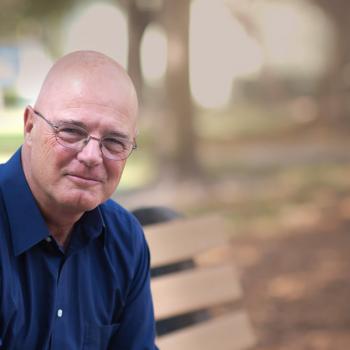Republican presidential candidate Rick Santorum accused President Obama of a “phony theology” over the weekend, a theology that takes seriously “serving the earth.”
I agree with Paul Raushenbush: Rick Santorum was terribly unwise to make theological correctness an issue in a political campaign. But I think he was right about his differences with President Obama being theological in nature. Many of us see ecological concern to be eminently theological and biblical . . . not that political arguments should be framed in terms of theological or biblical correctness, of course.
Leaving Senator Santorum’s choice of pronouns aside (the earth was made, he says, for “man’s” use), his attack on the president strikes me as a classic example of a false dichotomy, biblically speaking.
he Republican candidate follows the hallowed interpretive tradition of the Industrial Era by emphasizing Genesis 1:26,which speaks of humanity “having dominion” over the fish of the sea, birds of the air, and so on.
Now, many of us notice that this “dominion” is an expression of humanity being created in “the image of God.” That framing seems to imply that human beings should show the same care for creation that the Creator does—respecting and conserving God-given balances and systems. As image-bearers of God, we should, for example, show foresight to conserve God-given resources to benefit future generations rather than grasping for the most profit in the least amount of time to benefit today’s one-percenters. (One might even argue that this approach is more truly and deeply conservative.)
But those are quibbles that some of us would make and that candidate Santorum and his base are likely to ignore.
If, however, they were to turn the page in the Book of Genesis, they would come to Genesis 2. There the Garden of Eden is described as fertile, beautiful, well-watered, and rich land, and we find these words:
The Lord God took the human and settled him in the garden of Eden to farm it and to take care of it.
Quite stunningly, the Hebrew words (shamar and abad) behind “farm” and “take care of” (or “till” and “keep”) suggest exactly the kind of care, foresight, conservation, responsible use, and foresight-ful protection that the president has stood for—with many of us standing with him. Here’s how Christian environmental scholar and activist Cal DeWitt has explained it in an interview (see this full article for more details):
On earthkeeping, the reference there is to Genesis 2:15, where Adam is expected to till and to keep the garden. “To till” is the Hebrew word ‘abad; elsewhere in the Bible outside of agricultural context, this word gets translated “serve.” So we read in “Choose ye this day whom you will serve (“‘abad“), as for me and my house we will‘abad Jehovah.” In Genesis Adam is asked to ‘abad the garden. The idea is that the garden—the creation—serves us and other creatures by providing habitat, food and shelter, and beauty. And in turn we must serve it. So there is this idea of con-service, con-servancy, con-servation.
The Genesis 2 passage continues, “Eat your fill from all the garden’s trees.” There is abundance to be sure—abundance to be enjoyed, as Industrial Era interpreters rightly affirm. But that is not the whole story, because the next word is “but”—but there are limits to our enjoyment that must be respected . . . if, that is, we are to embody the image of God and live by the tree of life rather than by the tree of the knowledge of good and evil.
Candidate Santorum is moving up in the poles. He is saying things people want to hear: we can “have dominion” over the earth without accountability for how well we “till and keep” or “serve and preserve” it. This is a theology—an orthodox theology in the minds of many.
But not to all of us. As the title of my book Everything Must Change suggested, many of us think it’s time to retire Santorum’s Industrial Era theology of dominion and exchange it for a more ancient understanding . . . and one with more foresight for the future as well. He’s right: it is about theology—the question is which theology is phony and foolish and which is authentic and wise.











